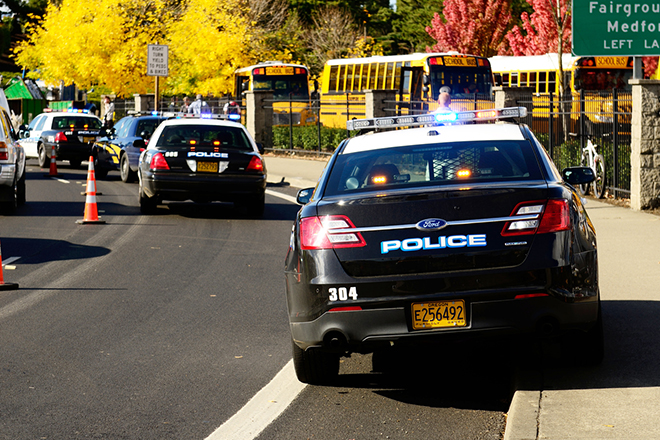Article by Liz LeBlanc, St. Mary's Episcopal Day School
It's one thing to read about policies, and quite another to discuss and practice them. That’s why St. Mary’s Episcopal Day School instituted dedicated security training for all faculty and staff last year. The school has followed well-developed security policies and practiced drills for various emergencies — fire, tornado, active shooter — for many years, but we knew we could do more.
Despite our location in a safe part of Tampa, parents had general concerns about things they’d heard in the news: Sandy Hook, shootings at universities, for example. Here in Florida a few years ago, a fired teacher returned to campus and shot the head of school and himself. Furthermore, security is often an important conversation in board meetings and sometimes a polarizing one. Should we do more to secure our campus? When do security measures go overboard and interfere with school culture and a positive learning environment? Fencing the school perimeter and employing armed guards generate intense debate. Security training is universally accepted and has only received positive feedback.
You want to be prepared to communicate to parents and media appropriately. You don’t want a teacher telling a reporter, for example, “I was so afraid! I was paralyzed by fear!”
For our first training, in August of 2016, we brought in a trainer from Invictus Consulting, LLC, a security management company based in Georgia, to conduct a four-hour workshop during the week of faculty meetings before school reopened. The trainer discussed general threats as well as potential scenarios and responses with all faculty and staff. He clarified the likelihood of each type of threat and also how faculty and staff should respond in the aftermath. You want to be prepared to communicate to parents and media appropriately. You don’t want a teacher telling a reporter, for example, “I was so afraid! I was paralyzed by fear!”
At the beginning of the workshop, some teachers were startled by the more extreme scenarios, which are scary. There was some angst in the room. But soon enough they started asking questions and got very engaged. In the end, the teachers said they liked the training, and the board loved it.
This year we invited Invictus back for a four-hour workshop during the week of faculty meetings before school reopens. The trainer will begin with a 20-minute review of the general principles we discussed last year, and we will distribute the school’s policies and procedures. Then the faculty and staff will break off and settle into different classrooms in groups of four, with one role-playing the teacher and three others role-playing students. We’ll simulate an emergency, and faculty and staff, not knowing which type it is beforehand, will respond. The trainer will observe and circulate throughout campus, and then we’ll reconvene, discussing how we reacted and best practices going forward.
Following St. Mary's initial training last year, Invictus conducted a full campus audit to assess threats and opportunities to mitigate our vulnerabilities, and we’re in the process of enhancing the safety of our facilities. But even if we spent a million dollars and implemented every recommendation immediately, some new threat could still arise; it’s impossible to plan for everything. The training clarifies and emphasizes how faculty and staff can remain calm and respond appropriately in any situation by falling back on general principles and making rational decisions in the heat of the moment.




